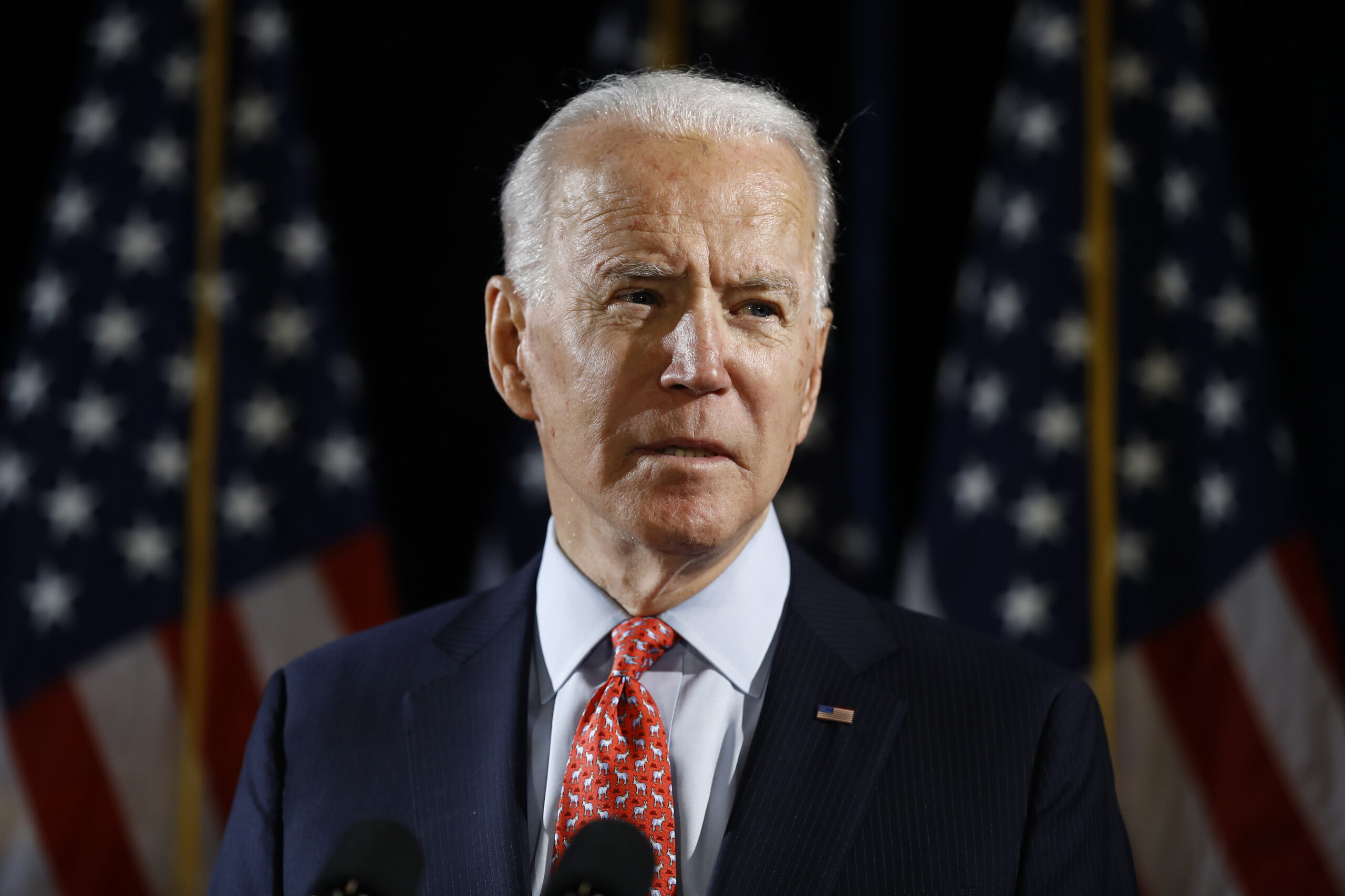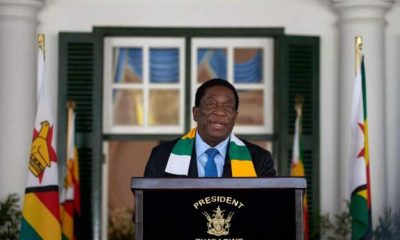WORLD
Would Biden’s Tax Plan Strengthen Or Weaken America’s Economy?
Published
3 years agoon
By
Joe Pee
Joseph R. Biden Jr. is pitching tax hikes on corporations and the rich. Many economists say they won’t hurt growth. Some conservative economists — and President Trump — say they’ll crush the recovery.

At a drive-in campaign rally last week at a union hall in Toledo, Ohio, Joseph R. Biden Jr. asked those in the audience to beep their car horns if they earned more than $400,000 a year. “You’re going to get a tax raise,” he declared as some cars honked.
Mr. Biden, the Democratic presidential nominee, has proposed sweeping tax increases on high earners and large corporations, which various independent forecasting models project would raise around $2.5 trillion or more in revenue over a decade. In a rare case of agreement, both Mr. Biden and his incumbent opponent, President Trump, have sought to elevate those tax plans in the closing weeks of the campaign.
The competing strategies reflect diverging views of how voters respond to tax increases — and of how those increases will affect a fragile economic recovery in the years to come.
Mr. Biden and his advisers say tax increases now would accelerate growth by funding a stream of spending proposals that would help the economy, like infrastructure improvement and investments in clean energy. At least one independent study supports those claims, finding that Mr. Biden’s full suite of plans would bolster economic growth. Researchers at some conservative think tanks project that his tax increases would exert only a modest drag on the economy.
Mr. Trump and congressional Republicans say otherwise, arguing that tax increases of any kind threaten to derail the rebound from recession. “If he comes along and raises rates, all those companies that are coming in, they will leave the U.S. so fast your head will spin,” the president said on Thursday during an NBC town hall event. “We can’t let that happen.”
A group of Mr. Trump’s former economic advisers released a study last week projecting steep losses in employment, wage and economic growth from the enactment of Mr. Biden’s agenda, including significant damage from a tax proposal that has drawn relatively little scrutiny in the campaign: Mr. Biden’s plan to lift the cap on wages subject to the payroll tax that funds Social Security. That move will raise money from high earners, but two of Mr. Trump’s former economic advisers say it will punish small-business owners and reduce hiring.
Polls show Americans largely support raising taxes on the rich. But Mr. Biden has faced mounting questions about whether, given the pandemic, he would delay his tax increases, which also include raising the corporate rate to 28 percent from 21 percent and increasing the rate on investment and labor income for high earners.
The questions have come largely from Republican critics, but also arose during an ABC town hall event on Thursday. Asked if it was wise to raise taxes on the wealthy and corporations now, in the middle of a weak economy, Mr. Biden replied, “Absolutely.”
Republicans have long asserted that any Democratic proposals to raise taxes would hurt the economy, regardless of whether it was booming or ailing. In recent years, including in the Democratic presidential primaries this year, Democrats and liberal economists have more forcefully argued the opposite: that raising taxes on the rich to fund government spending that bolsters the productivity of the United States economy will accelerate economic growth.
Economists advising Mr. Biden’s campaign from the outside say that they remain confident that his agenda will promote growth — and that Mr. Biden should not wait, if elected, to raise taxes on corporations and the rich.
“This has been a hugely unequal recession. And the high-income people, and big corporations, many of them have not had a recession at all,” said Austan D. Goolsbee, a former chief of the White House Council of Economic Advisers under President Barack Obama who is now a professor at the Chicago Booth School of Business and an outside adviser to Mr. Biden.
If you raise taxes on those groups as Mr. Biden has proposed, Mr. Goolsbee said, “and use the money for the things Joe Biden is talking about, that doesn’t decrease growth. That increases growth.”

Several independent tax modelers have analyzed Mr. Biden’s plans in recent weeks, estimating how much tax revenue they could generate and whether they would help or hurt the economy. Some analyze Mr. Biden’s tax and spending proposals together. Others focus only on taxes.
The most bullish of those analyses for Mr. Biden comes from Moody’s Analytics, which reported recently that if Mr. Biden wins and Democrats control both the House and Senate, the nation’s real gross domestic product would be $960 billion larger at the end of his term than it would be at the end of a second Trump term with Republicans controlling both houses. The gains from Mr. Biden’s spending programs would outweigh the drag from his tax increases, Moody’s determined.
Others have found relatively small effects on growth from the taxes. The Tax Foundation, which typically forecasts large gains from cutting taxes, predicts the Biden plan would reduce the size of the economy by nearly 1.5 percent over about 30 years. Kyle Pomerleau and Grant M. Seiter of the American Enterprise Institute find the tax plan would shrink the economy by 0.16 percent over a decade.
In an interview, Mr. Pomerleau said the drag was small from the proposals because Mr. Biden was largely taxing savings of high earners, which are not major drivers of economic growth given those Americans have a lot of their wealth saved.
“Some tax increases have larger effects on growth than others,” he said. “Biden has chosen taxes that don’t have a massive effect.”
Kevin Hassett, a former chairman of Mr. Trump’s Council of Economic Advisers now at Stanford University’s Hoover Institution, and Casey B. Mulligan, a former top economist for the council who is a University of Chicago professor, along with their co-authors, Timothy Fitzgerald and Cody Kallen, find much larger damage to growth in an analysis that examines Mr. Biden’s tax, health care and regulatory proposals.
They project that Mr. Biden’s plan to expand subsidies for health insurance under the Affordable Care Act will discourage Americans from working and earning more. And they predict that corporate tax increases will reduce in investment, that new environmental regulations will raise energy costs and that the increased Social Security payroll taxes will discourage hiring for small-business owners whose profits are taxed as individual income. High-earning owners of such businesses would be subject to additional taxes from the lifting of the Social Security wage cap, which the authors contend would reduce the amount of money they have available to hire.
Mr. Hassett said in an interview that the study was meant to show how “implausible” it would be for Mr. Biden to try to carry out his plans at a time when the economy was still struggling. “Jacking up the corporate rate right now seems like a disaster,” he said, “given how close to the edge so many firms are.”
Both Mr. Trump and Mr. Biden have been eager to make their tax plans a campaign issue. Mr. Trump frequently says that Mr. Biden’s plans would destroy the economy and plunge the country into another Great Depression.
On the campaign trail, Mr. Biden makes a point to note his pledge not to raise taxes on people earning less than $400,000 a year. His campaign is also emphasizing that promise in television ads, including one that concludes, “Biden’s plan: Corporations pay more. You benefit.”
Mr. Biden has leaned into the plan in the campaign’s final days. He has also acknowledged the potential political hurdles to enacting it. “So there’s not going to be any delay on the tax increases?” the moderator of the ABC event, George Stephanopoulos, asked Mr. Biden on Thursday.
“No, well, I got to get the votes,” Mr. Biden said. “I got to get the votes.”
You may like
-


Million-dollar sweater: Bids pour in for Princess Diana’s sheep jumper
-


Queenmothers launch campaign to promote decent language in politics
-


Watch Adwoa Safo’s apology to NPP leadership and members
-


Share rent, other bills with your husbands – KieKie admonishes women
-


Minimalism in Everyday Life: Decluttering for a Simpler Lifestyle
-


US Open: American teenager Coco Gauf wins first Grand Slam title
-


Alan Kyerematen withdraws from NPP flagbearership race
-


Zimbabwe president to be sworn in for second term
-


Video: Nigerian actress Ruth Kadiri threatens to sue Ghanaian TVs showing her content without authorisation

















